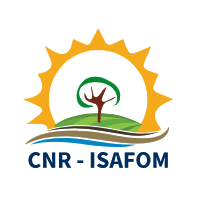First Livingagro communication activities to be performed as soon as possible


CNR Isafom is partner of “LIVINGAGRO – Cross Border Living laboratories for Agroforestry” project funded under the ENI CBC Med Programme 2014 – 2020, first call for standard projects, referring to thematic objective A.2 “Support to education, research, technological development and innovation”, priority A.2.1 “Technological transfer and commercialization of research results”.
With a total budget of 3,3 Million Euros and a 2,9 Million EU-contribution through the ENI CBC Med Programme, LIVINGAGRO project involves 6 organizations from 4 different countries including the Regional forest agency for the development of Sardinia’s territory and environment (Fo.Re.S.T.A.S.) in quality of Leading Beneficiary, the Italian National Research Council, Department of Biology, Agriculture and Food Science (PP1) and ATM Consulting sas (PP5) from Italy; the National Center for Agricultural Research and Extension (PP2) from Jordan; the Lebanese Agricultural Research Institute (PP3) from Lebanon and the Mediterranean Agronomic Institute of Chania (PP4) from Greece.
LIVINGAGRO addresses the challenge of knowledge and technological transfer in Mediterranean agriculture and forestry systems for achieving and sharing good practices aimed at sustainable production, protecting biodiversity, enhancing transfer of innovation and increasing profitability for territories and main actors as well as stakeholders involved. Using an open innovation approach for co-creating economic and social values and interactions between supply and demand, eliminating geographical and cultural barriers, two Living Laboratories will be established focusing on olive multifunctional system (Living Laboratory 1) and grazed woodlands (Living Laboratory 2).
For more information please visit the project website hosted at the ENI CBC Med Programme website.
Ultimo aggiornamento
28 Marzo 2025, 12:33

 CNR – ISAFOM
CNR – ISAFOM